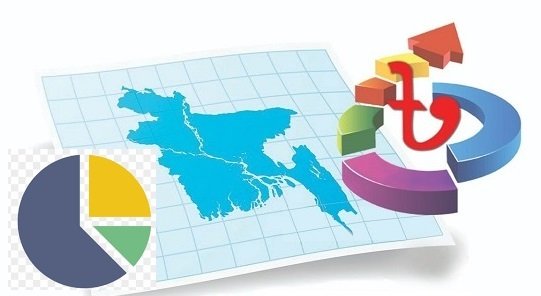Jannatul Islam: The government is preparing to announce a ‘cautionary budget’ in June, aimed at benefiting marginalised communities and public servants ahead of the national elections, according to economists.
In interviews with the Daily Sun, economists, including former central bank governors, highlighted the challenges the budget will face in accommodating subsidies for over Tk 1 trillion of interest on public borrowing from internal and external sources.
Finance Minister Mustafa Kamal is set to present the largest-ever budget, totaling Tk 7.69 trillion, on June 1. The budget is expected to target a higher gross domestic product (GDP) growth of 7.5 percent, despite pressure on macroeconomic indicators.
Former Bangladesh Bank governor Dr. Atiur Rahman believes the upcoming budget will need to strike a balance in the context of shifting global and local economies.
“High inflation must be contained while bolstering both remittances and exports. This will require more fiscal support, requiring resource mobilization from both internal and external sources,” Dr. Atiur told Daily Sun.
He emphasized the need for close coordination of monetary and fiscal policies to maintain focus on balancing major macroeconomic indicators.
Dr. Atiur also underscored the importance of robust social security support in the changing economic landscape. He called for continued budgetary support for agriculture, noting that Bangladesh’s economy is predominantly consumption-based and should maintain its focus on domestic growth.
Former research director of the Bangladesh Institute of Development Studies (BIDS), Dr. Zaid Bakht, identified potential challenges for the government, such as increasing inflationary pressure and currency depreciation.
The country’s inflation rate fell slightly to 9.24 percent in April from 9.33 percent in March, according to data from Bangladesh Bureau of Statistics.
Dr. Zaid, who also serves as the chairman of Agrani Bank, believes the budget should be cautious due to persistent inflationary pressure. He advised the government to eliminate non-productive expenditures and prioritize support for low-income groups to safeguard their livelihoods amid inflationary pressures.
“The wheels of the economy must be kept running at any cost,” Dr. Zaid said.
He recommended early completion of mega projects to reduce deficit expenditure on infrastructure development.
Dr. Zaid emphasized the need for timely infrastructure development to avoid additional expenses, especially when most countries are adopting austerity measures.
Regarding the increasing volume of interest on public lending, Dr. Zaid believes Bangladesh has the capacity to repay credit installments.
He does not foresee challenges in obtaining credit from foreign sources, considering it a part of fiscal planning.
However, he noted that some International Monetary Fund (IMF) suggestions may lead to changes at the theoretical level, with little impact on financial operations. Dr. Zaid also expects the local currency to depreciate slightly against the US dollar in the early stages of the next fiscal year.
As of May 2, Bangladesh’s foreign exchange reserves reached $30.98 billion.

